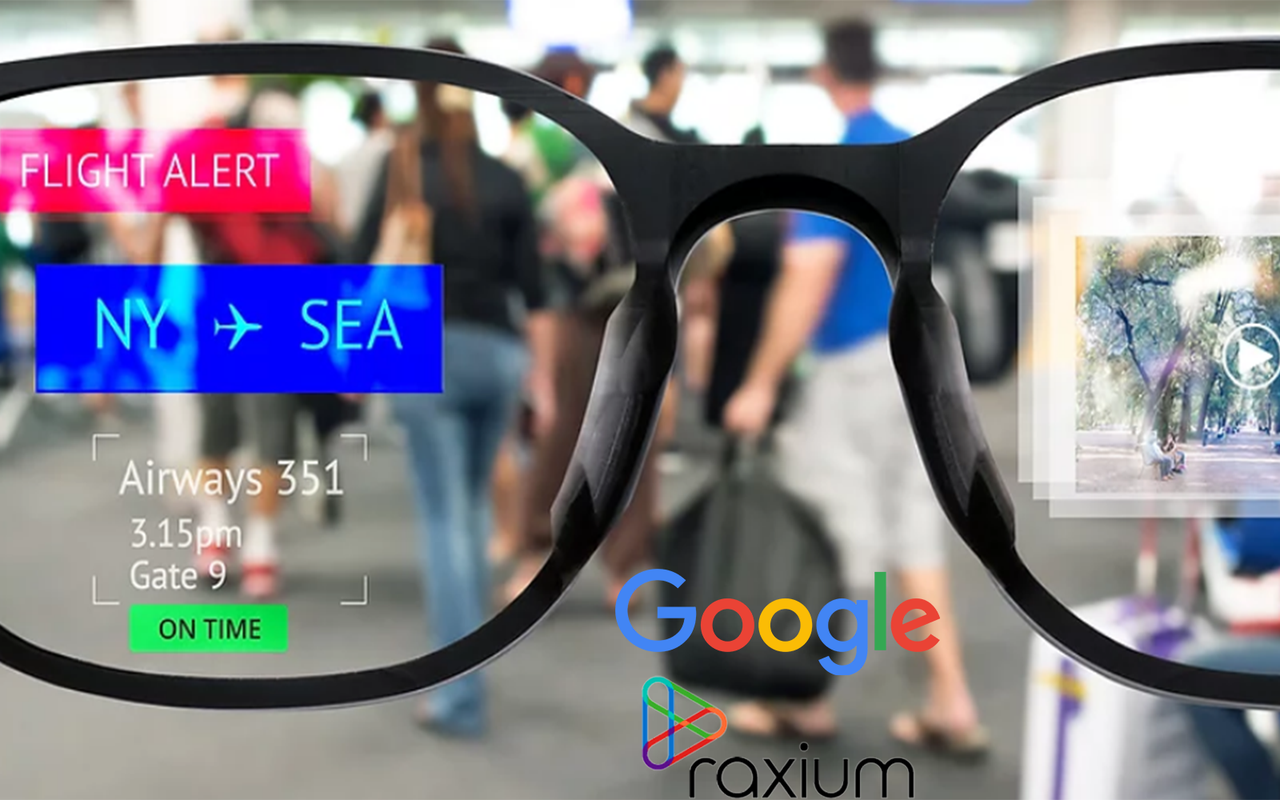Google's acquisition of Raxium, a pioneer in MicroLED display technology, marks a significant step in the tech giant's augmented reality (AR) and virtual reality (VR) ambitions. By integrating Raxium's advanced, energy-efficient displays, Google aims to enhance its hardware capabilities, positioning itself competitively in the evolving AR market.

Founded in 2017, Raxium specializes in ultra-compact, low-power, high-resolution MicroLED displays. Their core products include displays for augmented and virtual reality, as well as autostereo and light field applications. Raxium's unique selling points are its micron to sub-micron scale displays, which are 150 times smaller and 1000 times brighter than traditional options, and its ultra-low power consumption. The company also boasts high efficiency and brightness, serving major tech companies globally.
Google is a leading technology company primarily known for its search engine, which is one of the most widely used in the world. The company offers key products and services such as Gmail, Google Images, and various online advertising and business solutions. Holding a dominant position in the search engine market, Google extends its influence to multiple sectors, including email services and online advertising, making it a pivotal player in the tech industry.
Google acquired Raxium on May 4, 2022. This acquisition aligns with Google's strategic push into augmented reality (AR) and mixed reality (MR) technologies. The timing is significant as it follows Google's previous investments in AR, such as the acquisition of North and ongoing projects like "Project Iris." This move positions Google to compete with other tech giants like Apple, Meta, and Microsoft, who are also heavily investing in AR and MR technologies.
Market Expansion: Google's acquisition of Raxium represents a strategic move to expand its market presence in the augmented reality (AR) and mixed reality (MR) sectors. By integrating Raxium's advanced MicroLED technology, Google aims to develop next-generation AR headsets, enhancing its hardware capabilities and entering new markets.
Technology Integration: Raxium's MicroLED technology, known for its high brightness, good color fidelity, and energy efficiency, will be integrated into Google's AR hardware. This integration is expected to make AR headsets more energy-efficient and cost-effective, overcoming the limitations of current display technologies and driving down manufacturing costs.
Competitive Advantage: The acquisition of Raxium provides Google with a significant competitive edge in the AR market. Raxium's innovative MicroLED technology, which is five times more efficient than current solutions, positions Google to produce superior AR devices. This move strengthens Google's position against competitors like Apple, Meta, and Microsoft, making its AR products more appealing to both consumers and enterprise users.
The acquisition of Raxium by Google has led to significant changes in the startup's operations and management. Raxium has been integrated into Google's Devices & Services team, aligning its efforts with Google's broader hardware strategy. This shift is expected to streamline Raxium's operations, leveraging Google's extensive resources and expertise to accelerate the development of advanced AR and MR technologies. Additionally, the leadership structure has seen changes, with key figures from Google's hardware division overseeing Raxium's integration and future projects.
In terms of product offerings, the acquisition is poised to enhance the quality and efficiency of Google's AR devices. Raxium's MicroLED technology, known for its high brightness and energy efficiency, will be pivotal in developing next-generation AR headsets. This integration is anticipated to result in more cost-effective and high-performance AR products, benefiting both consumers and enterprise users. While specific employee and customer reactions have not been extensively documented, the overall sentiment appears positive, with expectations of innovative advancements in AR technology.
For founders considering business transitions, tools like Sunset can assist in managing such processes compliantly, ensuring a smooth and efficient transition.